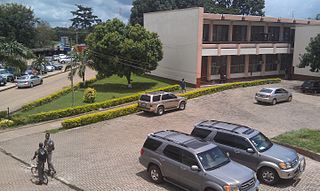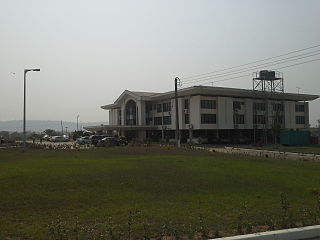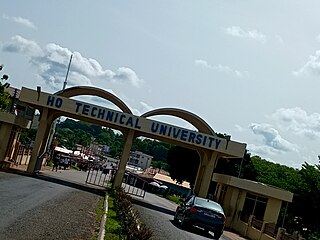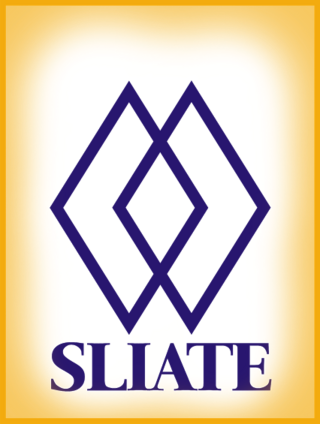Related Research Articles
National Vocational Qualifications (NVQs) are practical work-based awards in England, Wales, and Northern Ireland that are achieved through assessment and training. The regulatory framework supporting NVQs was withdrawn in 2015 and replaced by the Regulated Qualifications Framework (RQF), although the term "NVQ" may be used in RQF qualifications if they "are based on recognised occupational standards, work-based and/or simulated work-based assessment, and where they confer occupational competence".

The City and Guilds of London Institute is an educational organisation in the United Kingdom. Founded on 11 November 1878 by the City of London and 16 livery companies to develop a national system of technical education, the institute has been operating under royal charter, granted by Queen Victoria, since 1900. The Prince of Wales, later King Edward VII, was appointed the first president of the institute.

The Open University of Sri Lanka is a national university in Sri Lanka. It is unique within the Sri Lankan national university system for being the only university to offer programs of study leading to certificate, diploma, degrees and postgraduate degrees up to PhD level through the Open and Distance Mode of Learning (ODL). The degrees awarded by the university are treated as equivalent to degrees awarded by any other Sri Lankan University under the preview of the University Grants Commission.

The University of Moratuwa is a public university in Sri Lanka. It is located on the bank of the Bolgoda Lake in Katubedda, Moratuwa, a suburb of Sri Lanka's capital Colombo.

The National Institute of Business Management also known as NIBM, is a public business school based in Colombo, Sri Lanka.
The Institution of Incorporated Engineers, Sri Lanka (IIESL) was established in 1977 and incorporated by a Sri Lankan Act of Parliament. The institute registers engineering technologists and Incorporated Engineers under the Sydney Accord.

ESOFT Metro Campus is a private sector educational institute or college located in Colombo, Sri Lanka. It offers academic and professional qualifications in Computing, Business & Management, Engineering, Hospitality and English. Established in the year 2000, the company today has 40 branches nationwide. It is headed by Dr. Dayan Rajapakse.

The Sunyani Technical University (STU) is a public tertiary institution in the Bono Region of Ghana. It is located northeast of Asufufu.

Koforidua Technical University is one of the ten Technical Universities established in every region in Ghana. It was founded in 1997. Since 1999 it has produced graduates with HNDs in accountancy,, marketing, purchasing and supply, statistics and computer science, and currently offers degree programmes.

Ho Technical University, formerly Ho Polytechnic, is a public tertiary institution in the Volta Region of Ghana. The Polytechnic started in 1968 as a technical institute with the primary goal of providing pre-technical education. By 1972, the Institute made tremendous progress and upgraded its courses. In 1986, the institution was upgraded into a Polytechnic. However, it was not until 1993 that it got full backing of the law to become a fully-fledged tertiary institution, charged with the responsibility of training students to the Higher National Diploma (HND) and Degree Levels. The Polytechnic Law was replaced in September 2007 by the Polytechnics Act. Ho Technical University is one of the premier national tertiary institutions in the Volta Region. The Motto of the University is Adanu Nazu kekeli which means Adanu become light.
The Kumasi Technical University, formerly known as Kumasi Polytechnic, is a public tertiary institution in the Ashanti Region of Ghana.

The Sri Lanka Institute of Advanced Technological Education is a statutory body in Sri Lanka coming under the purview of the Higher Education Ministry and offering Higher National Diploma courses. At present, it manages and supervises eighteen provincial Advanced Technological Institutes throughout the island. The institute is traditionally known for its education in the accountancy and engineering. As per the recommendations of the Committee appointed by Prof. Wiswa Waranapala, Deputy Minister of Higher Education in 1994, the Sri Lanka Institute of Advanced Technical Education (SLIATE) was formed in 1995, under the Sri Lanka Institute of Advanced Technical Education Act No. 29 of 1995. In 2001, the name of the institution was amended as Sri Lanka Institute of Advanced Technological Education (SLIATE).

The Polytechnic, Ibadan is an institution of higher learning in Ibadan in Oyo State, Nigeria. Founded in August 1970, Poly Ibadan is similar to other polytechnics in Nigeria. The institution was founded to offer an alternative form of higher education, with a specific focus on acquiring technical skills distinct from traditional universities.. The vocational and skills acquisition center aims to guarantee that students acquire mastery in a skill before graduating, while also offering skills training to the local community.Poly Ibadan is also well known for its unique slogan written in Yoruba language as Ise loogun ise which means 'Work is the antidote for poverty', a classical Yoruba adage which stresses that hard work is the way out of poverty.
Higher National Diploma in Engineering (HNDE) is a public institute in Sri Lanka mainly focused on higher education. Since 1986 the Higher National Diploma in Engineering (HNDE) program has been the pioneer in producing incorporated engineers for the local and international industry.
Samarajeewa "Sam" Karunaratne, FIET, FIEE, FIESL is an emeritus professor of engineering and a leading Sri Lankan academic who is the founding chancellor and president of the Sri Lanka Institute of Information Technology and the former vice-chancellor of the University of Moratuwa. He has held a number of other appointments in the field of higher education in Sri Lanka, including senior professor of electrical engineering and dean of the Faculty of Engineering and Architecture, president of the Institution of Engineers, Sri Lanka. Karunaratne is a pioneer in the development of the use of computers in the field of engineering and played an important role in the development of information technology education and industry in Sri Lanka.
Advanced Technological Institute, Kegalle is one of the Government Institutes for Higher Studies. ATI Kegalle offers Four courses: Higher National Diploma in Information Technology, Higher National Diploma in Accountancy, and Higher National Diploma in English & Higher National Diploma in Project Management. These courses are under the control of the Sri Lanka Institute of Advanced Technological Education (SLIATE)
Engineering is the most sought after subject areas among Sri Lankan students. The engineering degrees make up less than 2% of the bachelor's degrees in Sri Lanka.

The Accra Technical University (ATU) was established in 1949 as a Technical School in Ghana and commissioned in 1957 as Accra Technical Institute before being converted into a Polytechnic in 2007 by the Parliament of Ghana.

Abubakar Tatari Ali Polytechnic, popularly known as ATAP, is a state-owned tertiary institution in Bauchi State, Nigeria. It was established by Edict No. 1 of 1988. The institution offers National Diploma and Higher National Diploma courses at undergraduate levels. There are seven unit schools in two campuses of the polytechnic.
References
- ↑ "Annual Report & Annual Accounts 2017" (PDF). Institute of Technology University of Moratuwa, Sri Lanka. 21 June 2018. p. 8. Retrieved 5 December 2024.
- ↑ "What is NDES?". Institute of Engineering Technology, Sri Lanka. Retrieved 5 December 2024.
- ↑ "Higher National Diploma in Accountancy (HNDA)". Advanced Technological Institute, Kegalle. Retrieved 5 December 2024.
- 1 2 3 4 "SLIATE courses" (PDF). Sri Lanka Institute of Advanced Technological Education. 31 August 2023. Retrieved 5 December 2024.
- 1 2 3 4 5 6 7 8 9 10 11 12 13 Sri Lanka Institute of Advanced Technological Education Annual Report 2015 (PDF) (Report). Ministry of Education. 2015. p. 8. Retrieved 5 December 2024.
- ↑ "HND in Business Administration". Northshore College of Business and Technology. Retrieved 5 December 2024.
- ↑ "Higher National Diploma in Business Management (Part Time)". National Institute of Business Management. Retrieved 5 December 2024.
- ↑ "Higher National Diploma in Engineering - (HND - Engineering)". Sri Lanka Institute of Advanced Technological Education. Retrieved 5 December 2024.
- ↑ "Higher National Diploma in Information Technology". Stanford College of Higher Education.
- ↑ "Higher National Diploma in Information Technology (HNDIT)". Advanced Technological Institute, Kegalle. Retrieved 5 December 2024.
- ↑ "Higher National Diploma in Quantity Survey (HNDQS)". Sri Lanka Institute of Advanced Technological Education. Retrieved 5 December 2024.